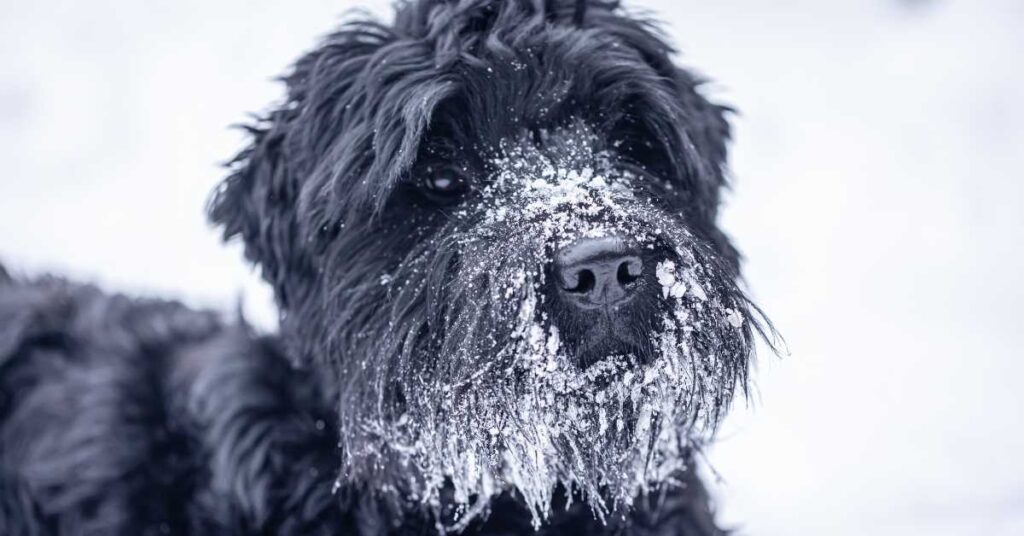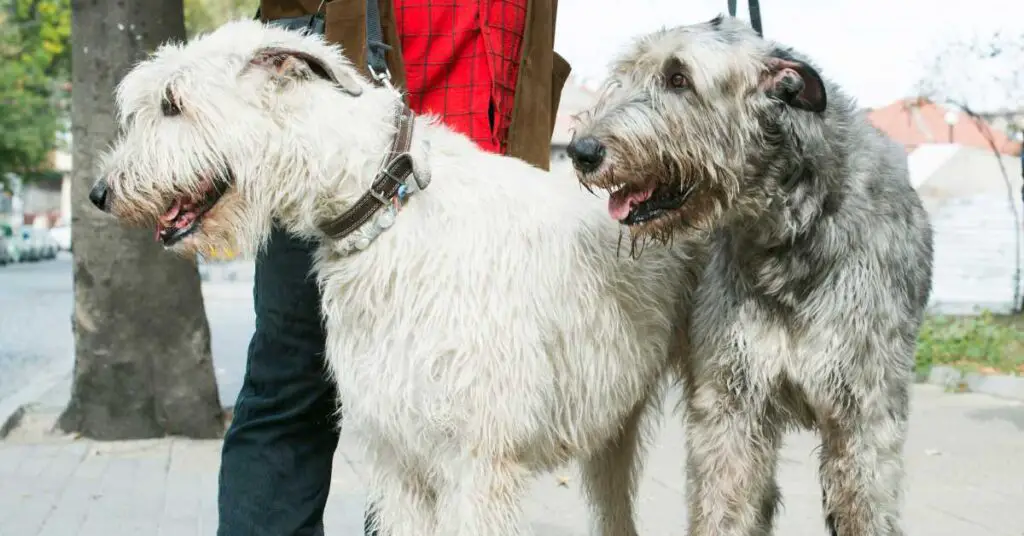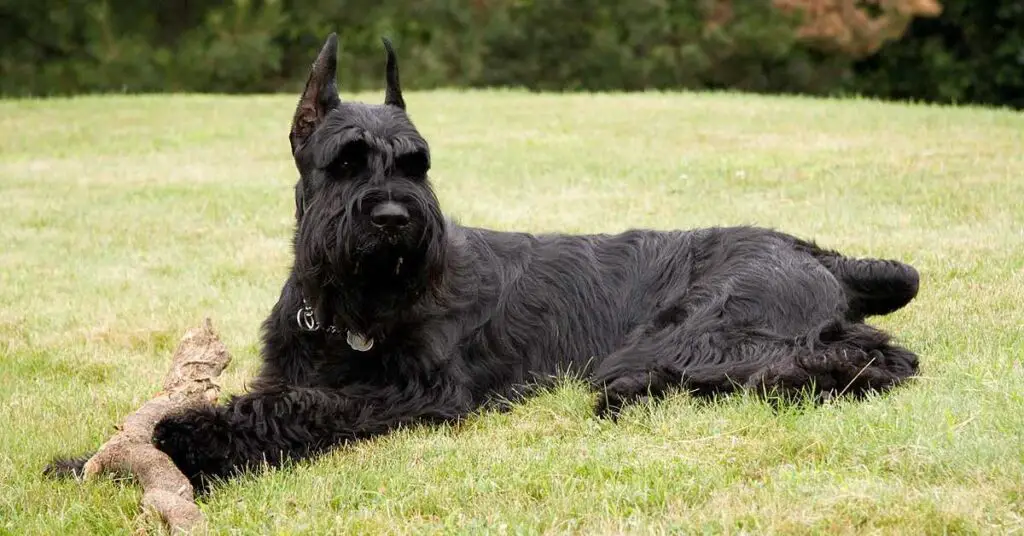We’re an affiliate. We may earn a commission on qualifying purchases through the links on this page. Learn more by reading our disclaimer.
Are giant schnauzers good for first time owners? Giant Schnauzers can be suitable for first-time dog owners, but they require a dedicated and consistent approach to training and socialization. These intelligent, energetic, and protective dogs need a firm, confident handler to establish a balanced relationship. Potential first-time owners should be prepared to invest time and effort in obedience training, physical exercise, and mental stimulation to ensure a well-behaved and content Giant Schnauzer companion.
Are you looking for a loyal, intelligent, and protective pet to add to your family? If so, then the giant schnauzer might be the perfect companion for you! With their impressive stature and gentle temperament, it’s easy to see why giant schnauzers are quickly becoming one of the top picks for first time owners. From their trainability to their need for stimulation, there’s a lot that makes them an ideal match for individuals looking to bring home an active pup.
Keep reading if you’re interested in learning more about this breed’s temperament and traits so you can make an informed decision about whether or not they’ll be a good fit for your lifestyle!
Are Giant Schnauzers Good For First Time Owners?
Yes, giant schnauzers can be a good choice for first time dog owners. They are intelligent and generally easy to train. However, they require a lot of exercise and can be quite active, so you must be able to provide daily walks and playtime. They also need more grooming than some other breeds.
Giant schnauzers are loyal and protective of their family, which is why they make good guard dogs. It’s important to socialize them when they are young to ensure that they know how to behave around people and other animals.
With proper training and care, giant schnauzers will be loving and loyal companions who will bring lots of joy to your home.
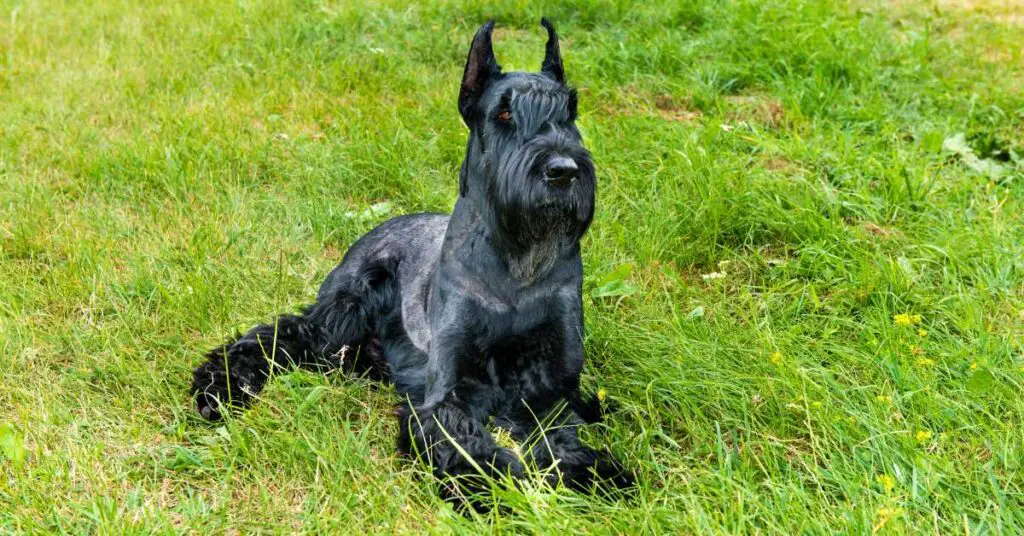
Understanding the Giant Schnauzer breed
What is the history and origin of the Giant Schnauzer?
The Giant Schnauzer, also known as the Riesenschnauzer, originated in Germany in the late 19th and early 20th centuries. Initially bred as a working dog, the breed was developed by crossing the Standard Schnauzer with larger breeds such as the Great Dane and the Bouvier des Flandres. The result was a strong, versatile dog used for herding, guarding, and pulling carts.
| Breed | Origin | Purpose |
|---|---|---|
| Giant Schnauzer | Germany | Working/Guarding |
What are the key physical and behavioral traits of Giant Schnauzers?
Giant Schnauzers are large, powerful dogs with a distinct appearance. They have a strong, rectangular-shaped body, a wiry coat, and a characteristic beard and eyebrows. These dogs are known for their intelligence, energy, and loyalty. Here are some key physical and behavioral traits:
- Height: 23.5-27.5 inches (60-70 cm) at the shoulder
- Weight: 55-85 pounds (25-38.5 kg)
- Coat: Wiry, weather-resistant double coat
- Colors: Black, salt and pepper
- Life expectancy: 12-15 years
- Temperament: Intelligent, loyal, protective, energetic
Assessing Giant Schnauzers’ temperament and behavior
Are Giant Schnauzers known for being friendly or aggressive?
Giant Schnauzers are known for their loyalty and protectiveness towards their family, which can sometimes be mistaken for aggression. However, they are generally friendly dogs when properly socialized and trained from a young age. Socialization helps them become more accepting of new people and situations, reducing any potential aggression.
Do Giant Schnauzers get along with other pets?
Giant Schnauzers can get along well with other pets, especially if they are raised together. However, their strong prey drive might cause them to chase smaller animals such as cats or rabbits. Early socialization and training can help minimize this behavior.
Related: Are Schnauzers Good with Cats?
Are Giant Schnauzers protective of their family?
As natural guardians, Giant Schnauzers are highly protective of their families. They are often reserved with strangers, making them excellent watchdogs. With proper training, they can distinguish between harmless visitors and potential threats, ensuring the safety of their loved ones.
Grooming and maintenance requirements
How much grooming do Giant Schnauzers need?
Giant Schnauzers require regular grooming to keep their coat healthy and prevent matting. Here’s a quick grooming checklist for your Giant Schnauzer:
- Brushing: At least 2-3 times per week
- Clipping: Every 4-6 weeks
- Beard and eyebrows: Clean and trim regularly
- Nails: Trim every 2-4 weeks
- Ears: Clean and check for infection weekly
- Teeth: Brush at least 2-3 times per week
What is the ideal exercise routine for Giant Schnauzers?
Giant Schnauzers are high-energy dogs that require daily exercise to stay mentally and physically healthy. A combination of physical activities and mental stimulation will keep your Giant Schnauzer happy and well-adjusted. Here’s an example of an ideal exercise routine:
- Daily walks: 1-2 hours of brisk walking or jogging, split into two sessions
- Off-leash play: Visit a dog park or a fenced area for some supervised off-leash fun
- Mental stimulation: Incorporate training sessions, puzzle toys, or scent games to engage their minds
- Playtime: Engage in interactive games like fetch, tug-of-war, or frisbee
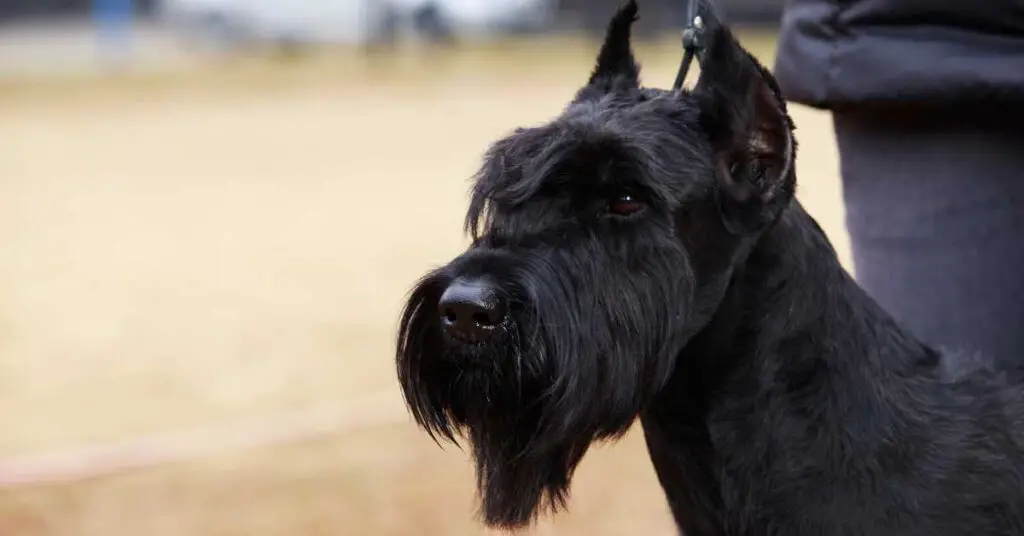
Health concerns and lifespan
What are common health issues found in Giant Schnauzers?
Like all breeds, Giant Schnauzers can be prone to certain health issues. It’s essential to be aware of these potential problems and provide regular veterinary checkups to keep your dog in good health. Common health issues include:
- Hip dysplasia
- Elbow dysplasia
- Cataracts
- Progressive retinal atrophy (PRA)
- Bloat (gastric torsion)
How long can you expect a Giant Schnauzer to live?
With proper care, a Giant Schnauzer can have a lifespan of 12-15 years. Regular veterinary checkups, a balanced diet, and an active lifestyle will help ensure a long, healthy life for your furry companion.
Finding the right breeder or rescue organization
What to look for in a reputable Giant Schnauzer breeder?
If you’re considering getting a Giant Schnauzer from a breeder, it’s crucial to find a responsible, reputable one. Here are some tips for identifying a good breeder:
- Prioritizes health testing and provides documentation for both parents
- Raises puppies in a clean, safe environment
- Encourages you to meet the parents and see where the puppies are raised
- Offers a health guarantee and support for the life of the dog
- Provides references from previous puppy buyers
- Is knowledgeable about the breed and its specific needs
Are there specific rescue organizations for Giant Schnauzers?
If you’re interested in adopting a Giant Schnauzer, there are rescue organizations dedicated to the breed. These organizations often have adult dogs in need of loving homes. Adopting from a rescue can be a rewarding experience, and you’ll be giving a deserving dog a second chance at a happy life.
Tips for first-time Giant Schnauzer owners
How to prepare your home for a Giant Schnauzer?
Before bringing a Giant Schnauzer into your home, it’s essential to make sure your living space is safe and comfortable for your new furry friend. Here are some tips for preparing your home:
- Remove hazards: Make sure to remove anything that could be harmful or toxic to your dog, such as poisonous plants, medications, and chemicals.
- Provide a designated area: Set up a comfortable area for your Giant Schnauzer to rest, including a bed, toys, and water bowl.
- Secure your yard: Make sure your yard is securely fenced to prevent your dog from escaping.
- Puppy-proof your home: If you’re bringing home a puppy, make sure to cover electrical cords, secure cabinets, and remove any small items that could be choking hazards.
What kind of training is essential for a Giant Schnauzer?
Training is crucial for a well-behaved, happy Giant Schnauzer. Start with basic obedience training and gradually progress to more advanced skills. Socialization is also essential to help your dog become comfortable with new experiences and people. Some key aspects of training include:
- Obedience training: Teach your dog basic commands such as “sit,” “stay,” “come,” and “leave it.”
- Leash training: Practice walking on a leash and teach your dog not to pull.
- Crate training: Introduce your Giant Schnauzer to a crate to create a safe, comfortable space and aid in housebreaking.
- Socialization: Expose your dog to different people, animals, and environments to help them become more confident and well-adjusted.
- Positive reinforcement: Use praise, treats, and toys to reward your dog for good behavior during training sessions.
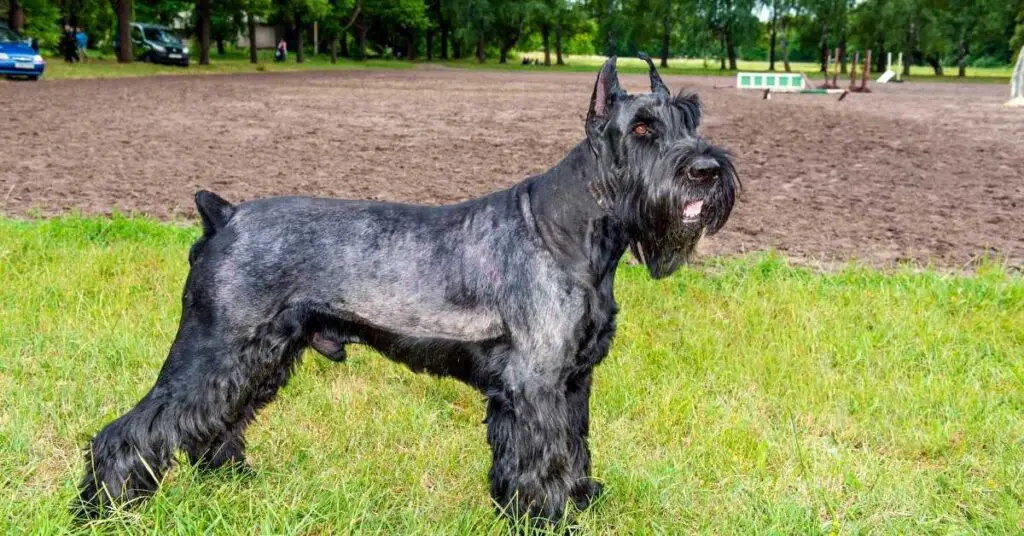
FAQs
Here are some common questions about Giant Schnauzers:
Are Schnauzers good for first-time owners?
While Giant Schnauzers might not be the easiest breed for first-time owners due to their size, energy levels, and grooming requirements, they can still be a great choice if you’re willing to invest time and effort into training, socialization, and grooming. Standard and Miniature Schnauzers might be more suitable for first-time owners due to their smaller size and more manageable energy levels.
Can Giant Schnauzers be left alone?
Giant Schnauzers can tolerate being left alone for short periods, but they may become anxious or destructive if left alone for extended periods. It’s essential to gradually build up your dog’s tolerance for being alone and provide mental and physical stimulation when you’re not home.
Are Giant Schnauzers kid-friendly?
Giant Schnauzers can be kid-friendly when properly socialized and trained. However, due to their size and energy, they might accidentally knock over small children. It’s essential to teach both children and dogs how to interact safely and respectfully.
What’s it like living with a Giant Schnauzer?
Living with a Giant Schnauzer can be a rewarding and fun experience. They are intelligent, loyal, and protective dogs that love spending time with their families. However, they require consistent training, exercise, and grooming to stay happy and well-adjusted.
Are Giant Schnauzers hard to housebreak?
Giant Schnauzers can be relatively easy to housebreak, especially with consistent training and a regular schedule. Crate training can also be beneficial in the housebreaking process.
What are the cons of a Giant Schnauzer?
Some potential cons of owning a Giant Schnauzer include their high energy levels, grooming requirements, and the need for consistent training and socialization. It’s important to carefully consider these factors before deciding if a Giant Schnauzer is the right breed for you.
Are Giant Schnauzers hard to train?
Giant Schnauzers are intelligent and eager to please, which makes them relatively easy to train. However, they can also be strong-willed and stubborn, so consistent, positive reinforcement-based training is essential.
Do Giant Schnauzers bark a lot?
Giant Schnauzers can be vocal dogs and may bark to alert their owners to potential threats or when they are bored. Training and mental stimulation can help reduce excessive barking.
Related: Do Schnauzers Bark a lot?
Do Giant Schnauzers like to cuddle?
While every dog has its personality, some Giant Schnauzers enjoy cuddling with their owners, while others may be more independent. It’s essential to respect your dog’s boundaries and preferences.
Do Giant Schnauzers get separation anxiety?
Giant Schnauzers can be prone to separation anxiety, especially if left alone for long periods. It’s essential to gradually build up your dog’s tolerance for being alone and provide mental and physical stimulation when you’re not home.
Related: Can Schnauzers Be Left Alone?
Are Giant Schnauzers high maintenance?
Giant Schnauzers can be considered high maintenance due to their grooming needs, exercise requirements, and need for consistent training and socialization. However, if you’re willing to invest time and effort into meeting these needs, they can be wonderful companions.
Do Giant Schnauzer puppies pee a lot?
Like all puppies, Giant Schnauzer puppies will need to go potty frequently during the housebreaking process. As they mature, they will be able to hold their bladder better and eventually be able to stay alone without having an accident.
Final Thoughts
When it comes to choosing a dog, a giant schnauzer can be the perfect addition to your family. Not only are they incredibly intelligent, but they are also extremely loyal and devoted. They have a lot of energy that needs to be taken into account when owning one, so those willing to commit to providing the exercise and training necessary for the breed will create an environment where both the owner and their new pet will benefit.
Taking the time to properly understand them is important since giant schnauzers are known for being quite independent-minded.
All in all, having a giant schnauzer as your companion is only as difficult or easy as you make it. With thorough preparation and dedication, first time owners can enjoy all of the respect, joy, and loyalty that these amazing creatures bring into our lives – making them a great choice for everyone!

